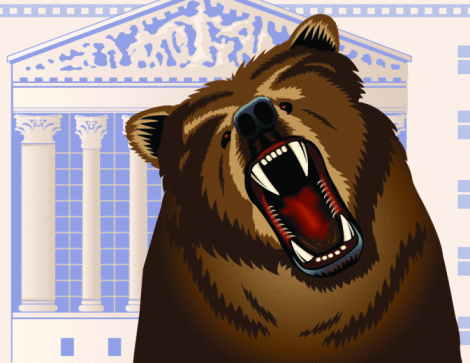The Coming Bear Market


Angry Bear Growling
This is the title of a recent article by economist Robert Shiller in which he discusses current economic and market conditions in the U.S. and compares them to prior times when markets declined. Shiller is notable for having published a book titled “Irrational Exuberance” in which he “predicted” the Great Recession. He seems to have been predicting another one ever since and runs the risk of exemplifying the broken clock syndrome. One thing that’s important to remember is that someone is always predicting bad things for the economy and the markets, every day, every year, so someone is always going to be able to claim prescience when the markets take a tumble. The reality is much messier, however, and prediction is usually a fool’s game. The economy and the markets are so complex and chaotic that they defy easy prediction. Even Shiller says not to base any investing decisions on his metrics, which leaves us wondering why he insists on regularly trying to scare people. For him, it seems, economics really is the dismal science.
Accepting as our starting point the folly of prediction, we can nonetheless examine conditions on the ground in order to assess the state of the world. First, the U.S. economy has been chugging along at a plus or minus 2% growth rate since the end of the Great Recession and doesn’t seem headed for anything but more of the same. The reason that economic expansions come to an end, historically, is that imbalances build up from one source or another. Low unemployment leads to wage inflation, for example, which spreads throughout the economy until the natural rise in interest rates – or a rise due to intervention by the Federal Reserve – tamps down economic activity, often leading to a recession. As we look around, we do find low unemployment, although it’s deceptive because the “participation rate” – the proportion of the workforce actively looking for employment – is also quite low by historical standards. Which means there’s a lot of room for new workers to decide to rejoin the game. In any case, we’re seeing modest rises in wages but nothing scary. Interest rates remain low and the Federal Reserve is being extremely circumspect in how it returns to a more “normal” monetary environment. The stock market has had an impressive rise and is sporting valuations, as represented by the price-to-earnings ratio, that are above average. Of course, when interest and inflation rates are well below average, you’d expect market valuations to be above average. And the rise doesn’t look like investors are building Castles in the Air, a phrase used by economist Burton Malkiel to describe conditions where investors are playing a greater fool game of buying just because they think prices will go up rather than on fundamentals. The reality is that earnings for U.S. corporations have been extremely strong.
Just as importantly, overseas markets, which represent half of your portfolio, are at a much earlier stage of recovery than the U.S. and have much further to go. And your overseas returns have been enhanced by a weakening dollar. Having said all that, it’s important to note that any significant decline in U.S. markets would likely be accompanied by declines worldwide. In the short-run, everything moves together but in the long-run, valuation levels will drive outcomes.
Finally, no matter what conditions look like, trying to time these things is not a winning strategy, especially if, as we do, you believe in the fundamental resilience and propensity for growth of your fellow human beings. And not only are human beings resilient, but so is your portfolio, which is designed to have a stable reserve that can carry you through six to seven years of a downturn if necessary. Which is to say, as long as you can weather a short-term decline – and you can – markets will always recover and grow in the long-run.
There will be a bear market, we just don’t know when, and nor should we care when, because it will only be a blip to be endured, not a permanent cause for harm.
